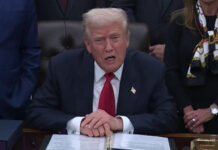Washington DC, November 14, 2025 — A major shake-up to the United States immigration system is on the horizon as a senior US lawmaker prepares to introduce a bill that would effectively terminate the H-1B visa program, long considered the backbone of America’s high-skilled foreign workforce.
Under the proposed legislation, the H-1B category would be reduced to a maximum of 10,000 visas annually, and reserved exclusively for medical professionals such as doctors, nurses, and critical healthcare specialists. All other categories — including tech workers, engineers, researchers, and scientists — would lose eligibility.
The bill, expected to be tabled in Congress within days, is already sparking intense debate across Washington. Supporters argue that the current H-1B system has been “abused” by large outsourcing and tech companies, while critics warn the move could cripple innovation in Silicon Valley and widen America’s talent gap in artificial intelligence, semiconductors, and biotech.
According to early briefings, the proposed plan creates a “medical exemption” that preserves access for essential healthcare roles amid a national shortage of medical staff. The lawmaker behind the bill claims this narrow allocation will “protect American workers while ensuring hospitals are not understaffed.”
Tech companies, however, are preparing for a fierce fight. Industry leaders say the proposal ignores the realities of the modern economy and could push corporations to move advanced research and engineering jobs offshore, weakening America’s competitive edge.
Immigration analysts say the bill represents one of the most aggressive attempts yet to dismantle the H-1B system, which currently issues 85,000 new visas per year. If passed, it would mark a historic shift in how the US attracts and retains global talent.
With the official introduction expected soon, policy experts anticipate a heated legislative battle that could define the future of America’s workforce strategy.















